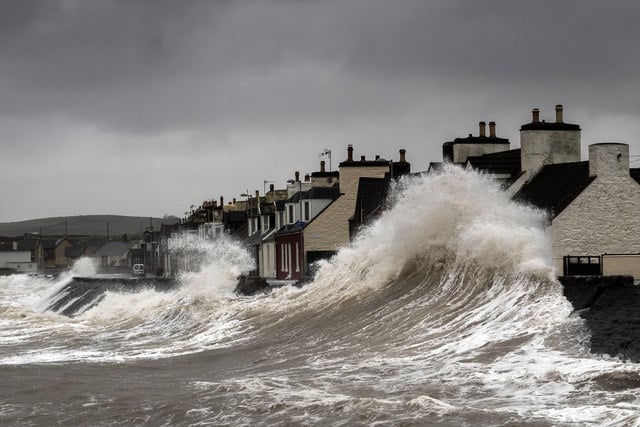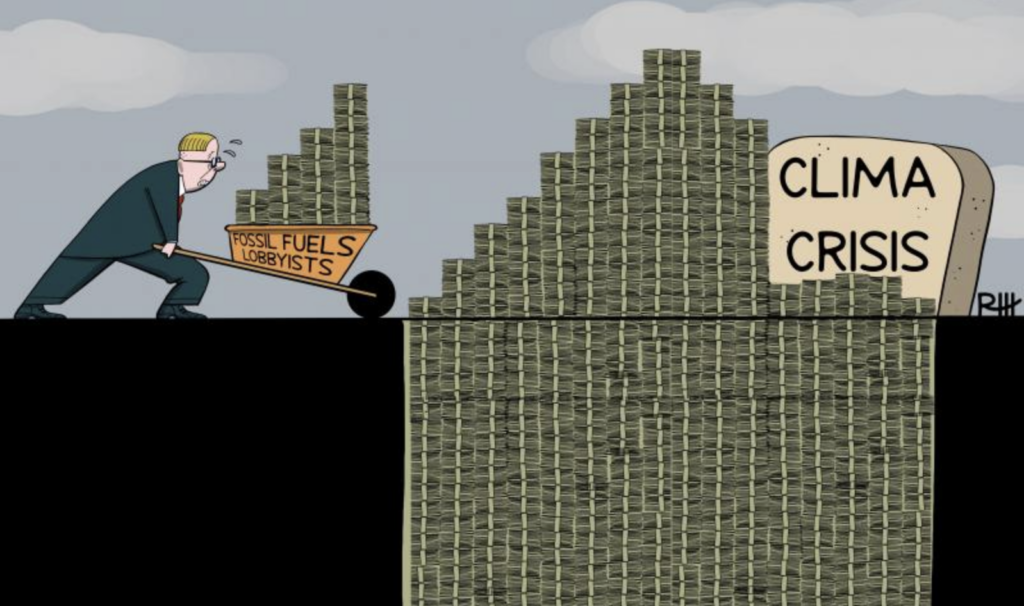Climate denier Lord Lawson claimed last night that any attempt to prevent catastrophic global warming is “unethical” because it would put the needs of future generations over those living today.
The former Tory chancellor, whose policies overheated the British economy in the 1980s leading to boom and bust, argued environmental risks should be ignored today because perpetual economic growth would mean future generations would always be richer.
Lawson was supported by Andrew Lilico, an economist and chairman of the Institute of Economic Affairs Shadow Monetary Policy Committee, who said: “The rich look after the environment best.”
The comments were made during a sometimes heated debate hosted by Christians in Parliament titled “Can We Afford to Save the Planet” at Portcullis House, across from the Palace of Westminster in London.
The other speakers included Professor Michael Jacobs of the Grantham Research Institute on Climate Change and the Environment, Andy Lester of Christian conservation organisation Rocha UK, Bishop James Jones and Martin Harper of the RSPB.
Jacobs reminded the audience that humans have never lived in a world with warming of 3°C degrees or higher, adding: “We need to be very careful about saying we can just adapt to climate change.
“It’s morally unconscionable to put future generations at these risks,” he said. “Yes there will be costs now… but the real question is can we really afford not to do it?”
Costs overestimated
Jacobs cited this week’s report published by the UN Intergovernmental Panel on Climate Change (IPCC) in pointing out that action today would cost just 0.06% of GDP per year.
He also added that these estimations are “probably overestimated” and that “costs for this present generation [to tackle climate change] are much less than Lord Lawson would have you believe.”
Criticising the IPCC for “exaggerating” its predictions however, Lawson said that “it’s not only crazy to be on the path that conventional wisdom sets out but profoundly unethical.
“This is because we’re asking people today to make sacrifices for those yet unborn who will be far better off than we are today.”
Both Lawson and Lilico argued that future generations will be better able to adapt to climate change because they will be richer. Lillico said that mitigation – cuts in fossil fuel that would hammer oil company profits – is a “battered corpse of a horse that we should just stop kicking.”
Yet, many do not feel like they are getting any richer. Britain has been in or close to recession for the past six years and strong economic growth has so far eluded the UK, Europe and the rest of the world.
While Lilico acknowledged that mitigation would lead to “slower emissions” he said this would mean slower growth and reduced GDP. Instead, by continuing to burn fossil fuels future generations will be richer and therefore better equipped to adapt to climate impacts he argued.
These points however were quickly rebutted by the other panellists. Not acting now means responding to an even warmer world with more severe climate impacts they said.
Today’s wealthy individuals “got rich by externalising costs to the environment” said Bishop Jones in response to Lilico.
“Can we afford to save the planet?” he asked, “Without a planet, we can’t afford anything. Earth is not a limitless larder.”
Audience members also criticised Lilico and Lawson’s reasoning.
For example, Bob Ward, policy and communications director of the Grantham Research Institute on Climate Change and the Environment wrote today in the New Statesman that the event showed further evidence of the “parallel universe” the former Chancellor has created by turning science on its head in attempts to “woo climate change ‘sceptics’ from the Conservatives and UKIP.”
“Don’t assume wealth will allow us to buy our way out,” said Jacobs. “It [climate change] doesn’t end at the end of the century with three degrees, it goes on.”
According to the IPCC, without concerted action on carbon emissions, temperatures could increase by almost 5°C above pre-industrial levels by the end of this century.
Climate change already happening
However it is not just future generations that will be affected many pointed out.
Impacts are already being felt around the globe. The IPCC report for instance cites examples such as the ocean acidification, the melting of arctic ice and poorer crop yields in some places.
At the same time across London at the Royal Court Theatre, climate scientist and chair of the London Climate Change Partnership, Chris Rapley was also discussing the IPCC report.
Rapley took centre stage to discuss how and why a 2°C global temperature increase could be avoided in a mesmerising and highly informative one man show.
He spoke of his granddaughter and imagined the type of world she would exist in, in 2071.
Speaking of his encouragement for her to become an engineer – testimony to his great climate solution – he said: “Our future lies with the engineers and the ongoing battle between new technology and economic prosperity.”
Echoing Rapley, RSPB’s Harper concluded that: “It makes political and economic sense to act now. And it makes sense for our children’s futures.”
“But for all of this to happen, of course, we may have to overcome our human flaws of carelessness, indifference and greed,” he said. “In many ways, this will be the greatest challenge our species will face over the next 25 years.”
Photo: David Baird
Subscribe to our newsletter
Stay up to date with DeSmog news and alerts







